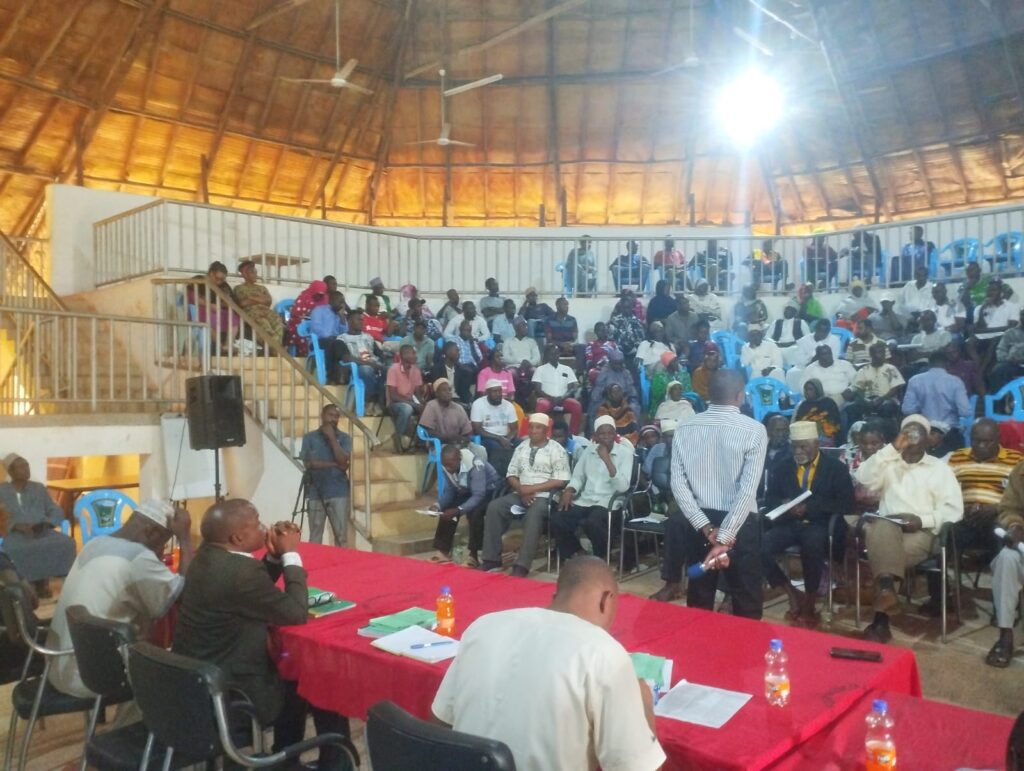By Nuru Salim
Kenya’s record Ksh4.2 trillion budget for the 2025/2026 financial year has stirred debate among coast leaders, with a call to channel more government attention and resources toward indigenous crops that drive rural livelihoods in Kwale County.
Speaking during a public participation session on the Finance Bill at the Kwale Cultural Centre, Matuga MP Kassim Sawa Tandaza urged the National Treasury to zero-rate agricultural inputs and outputs for crops such as cashew nuts, coconut, and Bixa.
He said that supporting these other indigenous crops from the coastal region would directly improve household incomes and unlock agro-industrial potential in the region.
“This Bill should not only focus on tax reliefs for crops like coffee, tea, and sugarcane but also consider our indigenous crops. Cashew nuts, Bixa, and coconut are the backbone of many families here in Kwale and the Coastal region at large,” said Tandaza.
 He added that coconut from the Coast is already attracting buyers from Tanzania hence more export to the neighboring country, and with proper investment in local processing factories, Kenya could increase export value and reduce post-harvest losses.
He added that coconut from the Coast is already attracting buyers from Tanzania hence more export to the neighboring country, and with proper investment in local processing factories, Kenya could increase export value and reduce post-harvest losses.
“Let’s invest in companies that can process these crops locally so we can improve quality, add value, and generate employment,” he urged, emphasizing Kilifi as a major cashew nut production where there is a need for a cashew nut processing factory.
The session also heard from residents like Abdalla Mwalimu, who pushed for lower taxation on manufacturers and importers to stabilize commodity prices and improve affordability for consumers. “High taxes on goods lead to inflation. The government has to ease the burden from the importers if we want to build a self-reliant economy,” he said.
In response, Hon. Francis Kuria Kimani, who is the Chair of the Departmental Committee on Finance and National Planning emphasized that the government is overtaxing the importers in order to discourage imports and promote local manufacturing.
Through this, the government has introduced tax incentives for local manufacturers and work on raising the per diem tax exemption threshold from Ksh2,000 to Ksh10,000. He also highlighted the scrapping of taxes on retirement benefits and gratuities as part of broader measures to increase disposable income.
The Finance Bill further proposes a Virtual Asset Service Providers (VASP) Bill to regulate cryptocurrency and blockchain transactions, which according to Kimani, saw over Ksh.4.5 Trillion (31 billion U.S Dollars) traded in Kenya alone in 2024. He said that this regulation is necessary to curb illegal financial activities, regulate inflation and attract credible international investors.
While the government aims to collect Ksh2.7 trillion in revenue for the fiscal year, about Ksh1.1 trillion will be allocated to debt repayment, reflecting a commitment to fiscal discipline. The remaining revenue will go toward salaries and development, though MPs acknowledged that tight fiscal space may challenge the rollout of new projects.


